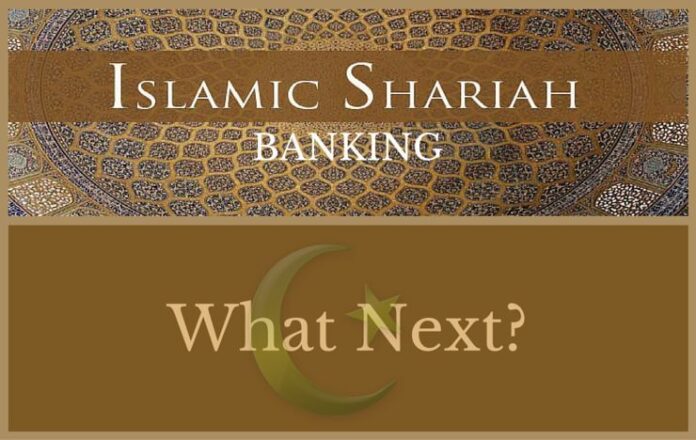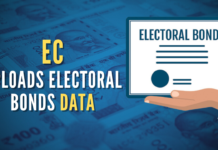
It is not uncommon for right-wing organizations to be unjustly accused of trying to divide the people on religious lines. However, when a central agency like the Reserve Bank of India, starts thinking along similar lines, one is forced to question the “secular” nature of such agencies and the unbiased outlook of its leaders. An RBI panel headed by Deepak Mohanty placed a report titled “Report of the Committee on Medium-term Path on Financial Inclusion”. One of the recommendations was to enable commercial banks to open special windows to offer interest-free deposits and advance. This is the primary requirement for Shariah banking which prohibits acceptance of specific interests as they are classified as haram i.e. sinful and prohibited.
This is not the first attempt to bring Shariah banking practices to India.
Back in 2007, an RBI appointed working group under the then executive director, Anand Sinha was setup to study this in further detail. They had ruled out Islamic banking in the country, saying current regulations do not permit the model.
State Bank of India in December 2014 announced the launch of an SBI Shariah fund, a Shariah-compliant equity mutual fund. An objection raised by BJP leader Dr. Subramanian Swamy resulted in the plan being shelved. Official reason for the deferral was “commercial considerations”.
As per the legal opinion of Dr. Subramanian Swamy, who had tweeted his objection, Shariah banking cannot be implemented in India without amending the Reserve Bank of India Act, 1934 by the Parliament.
Goldman Sachs Asset Management Company in India has been running GS Shariah BeES ETF since its entry into the Indian mutual fund market since 2011. This ETF is highly illiquid and is not traded for many days at a stretch.
So, what next?
It’s been 69 years since India’s independence and over 80 years since the RBI came into existence. How has the Muslim community been banking? I refuse to believe that they have only been dealing in cash for so many decades. Is the RBI trying to say that the primary reason for this community to avoid the formal banking system has been lack of Shariah banking? 20 crore (200 million) bank accounts were opened as part of the Pradhan Mantri Jan-Dhan Yojana. Why not publish statistics on the demographic breakup of these new account holders in addition to the existing ones to prove with facts before recommending a policy?
Unanswered Questions…
-
What about Muslims living in countries with Uniform Civil Code like Australia, USA and Europe?
-
Are they not part of the formal Uniform Banking system?
-
Are they demanding for Shariah Banking in these countries?
-
Has any country with a non-Muslim majority allowed Shariah Banking?
-
Do Middle Eastern businessmen who would be using Islamic banks in their home country not invest in countries without Islamic banks?
-
Do these Islamic Banks themselves never deal with international banks?
-
If an independent businesswoman wants to start a new business, say a small boutique shop. Will an Islamic Bank provide her with seed capital?
-
Will they provide any Muslim women loan for business or property purchase?
These are a few basic questions which RBI and the “green” lobbyists will need to answer before any formal request can be considered. Given that this change would need a parliament approved amendment of the RBI Act, will this see the light of day anytime soon?
- The descent of Air India & Dr. Swamy’s PIL dismissal - January 8, 2022
- Exclusive chat with Dr. Subramanian Swamy on Jet-Etihad deal - October 27, 2017
- Rural Tamil Nadu celebrates Jallikkattu in style; Sasikala anoints self as CM - February 5, 2017











Hi there
First of all Lets take India as main point. Indian records says that 75% of people are bankrupt Times of india and reserve bank of india reports.
Now How will Islamic banking system will help them but it will also be a loss toll to indian corrupted officers and Indian corrupted businessmen but it will be very useful to poor people and middle class people
1st if you take 10 Lacs loan from A non shariah bank like normal interest based banks you have interest around 6% to 12% per annum means if you take 10 lacs loan for 10 years you have to pay them back almost 20 lacs So banks profits 10 lacs from a needy people or poor or this is highly interest based you maybe had loss and may go bankrupt.
2nd thing when you g bankrupt you may lose your property or assest you kept under the bank policy.
So in addition profit is for Rich is going rich with banking system and poor is going poor and they dont have even clothes to wear.
Now lets take Islamic bank System
1st You take 10 lacs a loan you dont need to pay 6 to 12% interest per annum so no interest now but you have to pay a very less fees called as Tadawul in Islamic banking that is almost if you take 10 lacs then on 10 lacs you have to pay just 10000RS so on 10 lacs 10000rs tadawul Islamic profit fact earning that’s halal and in this case your free from getting bankrupt you just have to pay 10,000RS on 10 lacs and no per annum its on overall so no interest. buy thing on installments pay just tadawul no interest great choice from my end !
2.) Investing on things like that makes society bad is very wrong from all religions so better invest on those banks which does not involves in making its society bad.
I have few questions :
1) You gave example of 10K tadawul on 10Lac loan. Is it that 10% per annul tadawul or is it one time until I clear the loan?
2) How does bank fix the rate of tadawul? Is it fixed 10% or fluctuating?
3) What if I could not pay back money, say I have took loan of 50Lac to buy a home and lost my job after 1 year. In normal bank my house is gone after certain amount of time if I can’t repay. , how Islamic bank works in this scenario?
Interest free from what? For users of the bank or those who borrow or both?
Can entire world follow this model?
What is the meaning of profit in businesses?
Does this model say anything about the pricing and the maximum percentage of the profit
a business can make?
What about the role of supply and demand in the pricing, the
model currently being followed, though with some restrictions?
How do these models interact with each other?
If uncomfortable with such banking, why even migrate to non-Islamic countries,
invest in those countries for interest, as pointed out in the article?
Will not life become more complex for the most when the logic is not
applied uniformly, but only selectively and will it not lead to eventual chaos.
May all beings be happy!
IMF has initiated (http://www.imf.org/external/themes/islamicfinance/) and Canada Leading in applying Interest Free window ( http://www.albawaba.com/business/canada-poised-become-regional-hub-islamic-finance-777224) , it will benefit India, as west is trying to cap the vast marked, we should step a head to uncap the vast market, most indian muslims dont use banks including my uncle keeping hard cash in home, our govt should trying to bring that stagnant money to the market by streamlining them and encouraging them to invest money in the market with this option of interest-free scheme.
Islamic banking is a farce, fooling Allah, LOL. Ask your uncle to read between the lines!
Creeping Sharia. India is following in the footsteps of the Colonial Lords and Masters whose loyal and faithful clerks inherited their mantle in 1947. Besides, Raghu Ram Rajan is a US made Khangress Walla who wanted Narendra Modi to be “tolerant” and is asking the BJP to reing in “deficit finance” which he founf perfectly resonable to finance, for example, Pawar’s Praful Patel’s adventures with Air India as a member of the Manmohan-Sonia parivar-that-loots-together-to-stay-together:
Islamic banking is a total farce!
Islamic banking is a hypocrisy!
If indeed interest free banking is viable and good option then implement as such as why name it shariah and give religious color? This sends a signal that Secularism is farce or Shariah is legitimate….
Useless comment ! They only market the beautiful side such as no interest rate. How do you think they make money? They don’t apply interest rates but they complement that loss by applying humongous fee on each product. Fee compliments any loss of income generated from interest rates. Remember the first rule of finance.. There are no free lunches..
There are No free prayers too! LOL.
After 2008 crisis, Interest Free banking is one of the fastest growing system in overseas with growth of 15 to 20 percent annually. However the unique thing that this system is not limited to muslim only it also provide the services to non muslim as well, hence charging interest over loan is not allowed in Hindu, Christian, and many others. You may deep down your research and please think from business prospective in indian context. I’m sure you will also change your mind about interest free banking. Please find below your unanswered questions has been addressed now.
Answer 1. USA, UK, Germany, Austria and Australia they already have introduced Interest free banking system. You are kindly requested to dig further in your research into it. you may further refer to IMF report been mentioned in RBI recommendations in the context of interest free banking.
Answer 2. Yes, Majority of Muslims are not able to utilise the banking system in india as it supposed to, due to prohibition of interest. Kindly note that Jain community also been excluded from the financial services due to religious hindrance about Interest.
Answer 3. Yes, there are big demand for interest free banking and huge opportunity to bring isolated community into banking sector. When other best and largest democracy countries have introduced thos system why india would lag behind?
Answer 4. You may look at UK, USA, Germany, Hong Kong, Singapore etc.
Answer 5. Interest free banking would encourage middle eastern people who are beliving that interest free banking has less opportunity to the crisis in comparison to conventional banking. You may look at the growth of interest free banking in middle east which is outstanding.
Answer 6. They do deal with international banks given the criteria of interest free principle and best example could be HSBC, Citi Bank, Standard Chartered, Dutch Bank, CIMB and Maybank etc. are dealing with interest free banking system.
Answer 7 and 8. In Banking system be it interest free banking or conventional banking, there is no gender or religious or race discrimination as long as they are meeting the criteria from business prospective. Customer is customer.
Even assuming there is justification for opening a “Interest Free Banking”(leaving alone apprehensions of terror related hawala funding)why mention “Shariah/Islamic”in naming them?
Thanks for responding.
1. Please provide specific reference and regulations where said countries have allowed Shariah banking
2. You need to check with the working middle class. Please don’t tell me they still take payments in cash. Never heard Jains making any such request.
3. Again ref:1, provide specific references. India should never seek to ape the West. Hence I don’t think we are lagging behind in any way.
4. Again specific references of where this is widely used in the retail segment?
5. Your response is not relevant to the question raised. Have they not already invested in the west?
6. Please give me links to these banks where they claim to be Shariah compliant in all the banking policies. We will work to cancel their licenses in India.
7. 8. Please provide data on the demographic breakup of loans provided by middle eastern banks and how much of it was provided to women.
Nice Article. Modi Govt need to sack RaghuRam as RBI governor and appoint some organic person to this post who understand India.